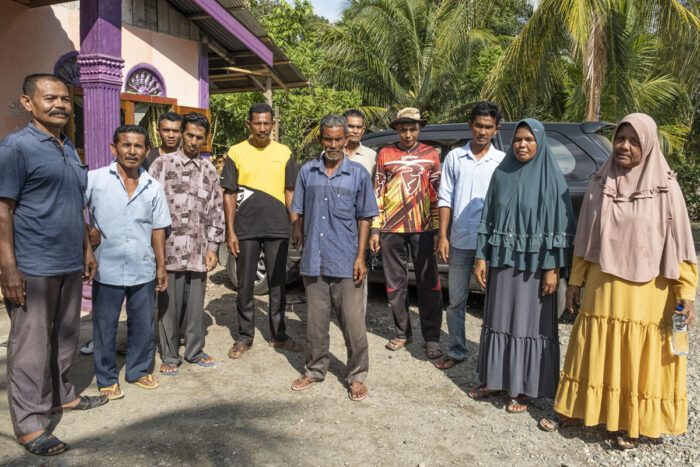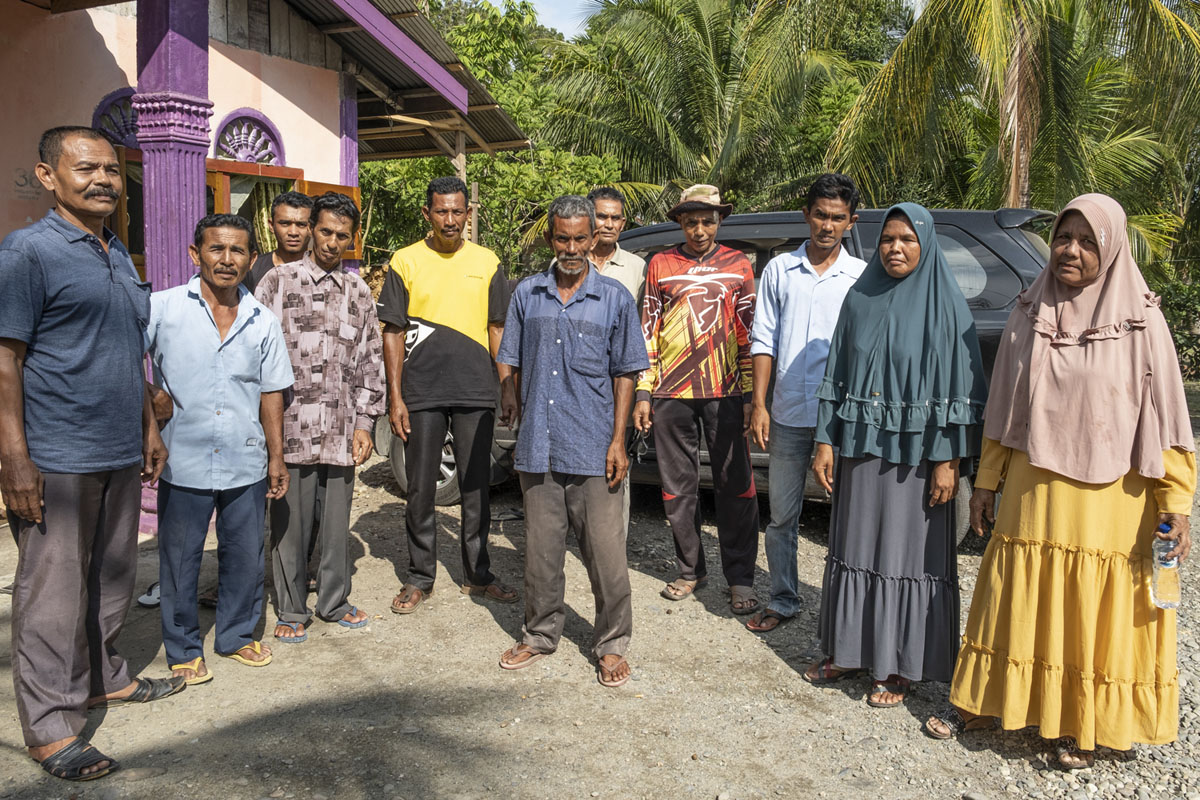Urgent intervention needed by brands to end intimidation of land defenders in Tripa Peatland region by PT. Cemerlang Abadi
Palm oil plantation company PT. Cemerlang Abadi (CA) continues to be at the center of controversy due to its defiance of a government order to return lands within its palm oil concession to local communities. The company has been ordered to return 4695 acres to the Pante Cermin community–– one of the customary communities located in the Tripa Peatland in the Leuser Ecosystem that never consented to the development of plantations on their lands. Urgent intervention is needed by Unilever, Nestlé, Mars, Procter & Gamble, Ferrero and Kao––and their suppliers––to ensure the protection of this community from intimidation during the land reallocation process.
In May, RAN exposed PT. CA as a rogue company that persisted in razing peat forests in its palm oil concession––the last remaining forests in the Tripa Peatland that was once known as the ‘orangutan capital of the world.’ Since then, Akmal Ibrahim, the head of Aceh Barat Daya district, where CA’s concession is located, pledged to return 4695 acres of the concession to local communities in the Pante Cermin village. This decision is a glimmer of hope in a decade-long unresolved conflict with the Pante Cermin community––a community that has been fighting to regain the rights to lands allocated to two palm oil companies for palm oil production––PT. Cemerlang Abadi and PT. Dua Perkasa Lestari. Instead of accepting the government’s decision and supporting the administrative process to redistribute the ex-concession areas to the Pante Cermin community, PT. CA is using intimidation tactics to deter communities from rightfully reclaiming their lands.

Caption: Members of the Pante Cermin community have been fighting to reclaim their customary lands from two palm oil companies for over a decade.
Local organizations LBH Aceh and Walhi Aceh have documented the land grabbing of customary lands, destruction of community food crops without Free Prior and Informed Consent (FPIC), and the systematic use of military force to intimidate and displace community members for over a decade. Recently, local communities were once again confronted by a large group of the Indonesian Police Mobile Brigade (Brimob) sent to the field to deter communities from re-establishing their crops on the lands set to be redistributed to their community.
The Pante Cermin have been repeatedly intimidated by the Brimob and the intimidation tactics used by two palm oil companies–– PT. Cemerlang Abadi and the neighboring PT. Dua Perkasa Lestari. Intimidation by both palm oil companies has sparked horizontal conflict amongst the community. Horizontal conflict is where conflict arises between community members. This conflict within a community results from the company organizing community members to accept the compensation deal offered for the lands taken for palm oil development. It often results in community members being encouraged to defend the company against other members of the community that maintain their right to oppose development on their customary lands.
This latest incident shows that PT. Cermlang Abadi continues to violate the policies of Indonesia’s Ministry of Internal Affairs that prohibit the use of intimidation tactics and the policies of major brands such as Unilever, Mars, Procter & Gamble, Ferrero and Kao and that have committed to zero tolerance policies for the intimidation of Human Rights Defenders.
RAN calls on these companies to ban sourcing from PT. Cemerlang Abadi, effective immediately. These brands–and their suppliers such as Golden Agri Resources, Apical, Wilmar and Musim Mas–– must engage PT. CA to ensure an end to intimation of the Pante Cermin community and an acceptance of the government’s decision to return 4695 acres of its former palm oil concession area to the local communities.
This case shows the importance of major brands, agribusiness traders and banks in adopting and enforcing dedicated policies and procedures to ensure zero tolerance of intimidation, violence and criminalization of Human Rights Defenders, including land and environment defenders in Indonesia. RAN’s recent https://www.ran.org/kfs-scorecard/ showed that most corporations financing or driving the expansion of palm oil plantations into tropical rainforest and indigenous territories lack adequate policies and procedures to respond to the growing crisis facing Human Rights Defenders.
This evaluation also found there has been an absolute failure of brands and banks to require proof of Free, Prior and Informed Consent (FPIC) — a foundational right of Indigenous Peoples — from their clients, suppliers or investees. To date, not a single brand or bank has published any procedures that would ensure Indigenous Peoples and local communities are respected in their right to give or withhold consent for development on their customary lands.
Brands, traders, and banks must take real action to prevent further human rights violations and deforestation. We call on them to keep forest standing and uphold Indigenous Peoples rights now.












